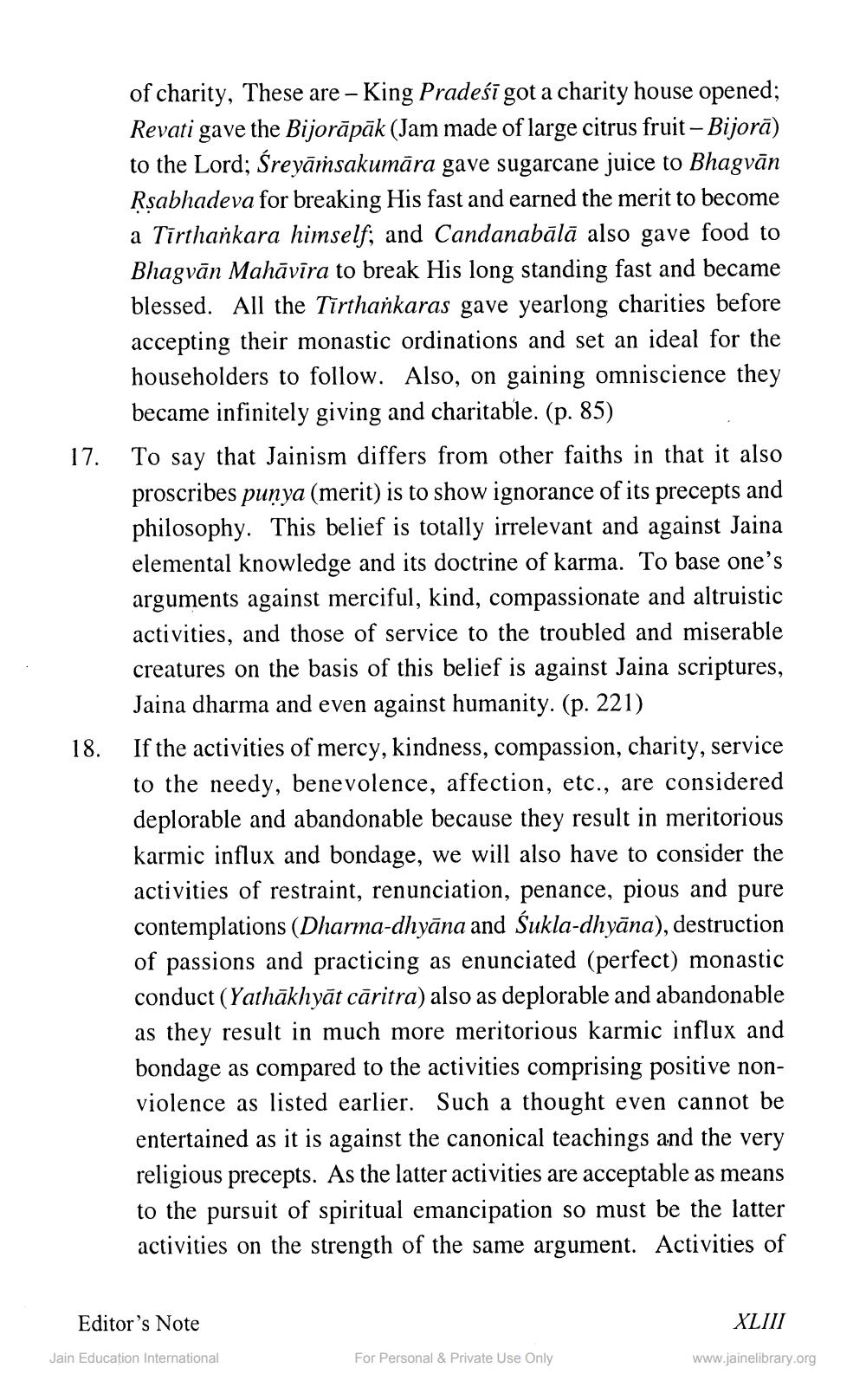________________
17.
of charity, These are - King Pradeśī got a charity house opened; Revati gave the Bijorāpāk (Jam made of large citrus fruit – Bijorā) to the Lord; Śreyāísakumāra gave sugarcane juice to Bhagvān Rşabhadeva for breaking His fast and earned the merit to become a Tirthankara himself; and Candanabālā also gave food to Bhagvān Mahāvīra to break His long standing fast and became blessed. All the Tirthankaras gave yearlong charities before accepting their monastic ordinations and set an ideal for the householders to follow. Also, on gaining omniscience they became infinitely giving and charitable. (p. 85) To say that Jainism differs from other faiths in that it also proscribes punya (merit) is to show ignorance of its precepts and philosophy. This belief is totally irrelevant and against Jaina elemental knowledge and its doctrine of karma. To base one's arguments against merciful, kind, compassionate and altruistic activities, and those of service to the troubled and miserable creatures on the basis of this belief is against Jaina scriptures, Jaina dharma and even against humanity. (p. 221) If the activities of mercy, kindness, compassion, charity, service to the needy, benevolence, affection, etc., are considered deplorable and abandonable because they result in meritorious karmic influx and bondage, we will also have to consider the activities of restraint, renunciation, penance, pious and pure contemplations (Dharma-dhyāna and Sukla-dhyāna), destruction of passions and practicing as enunciated (perfect) monastic conduct (Yathākhyāt cāritra) also as deplorable and abandonable as they result in much more meritorious karmic influx and bondage as compared to the activities comprising positive nonviolence as listed earlier. Such a thought even cannot be entertained as it is against the canonical teachings and the very religious precepts. As the latter activities are acceptable as means to the pursuit of spiritual emancipation so must be the latter activities on the strength of the same argument. Activities of
18.
Editor's Note
XLIII
Jain Education International
For Personal & Private Use Only
www.jainelibrary.org




